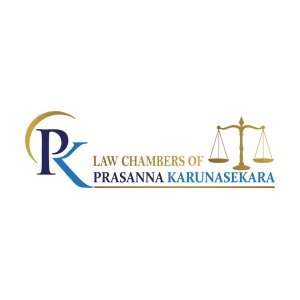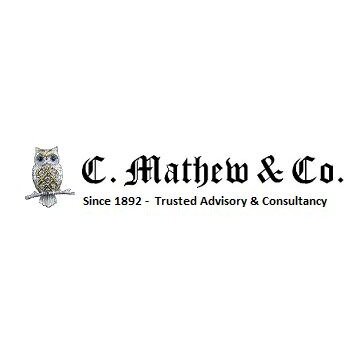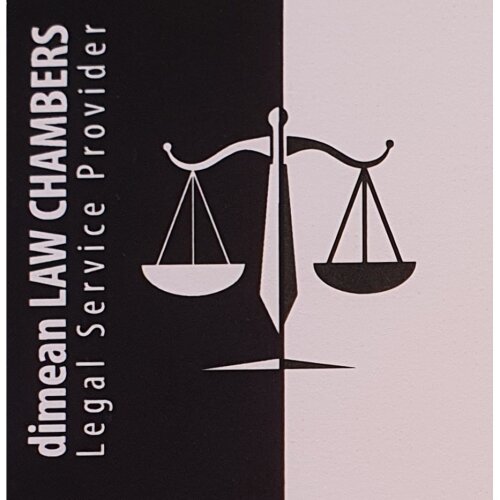Best Child Abuse Lawyers in Sri Lanka
Share your needs with us, get contacted by law firms.
Free. Takes 2 min.
Free Guide to Hiring a Family Lawyer
Or refine your search by selecting a city:
List of the best lawyers in Sri Lanka
About Child Abuse Law in Sri Lanka
Child abuse in Sri Lanka is a grave concern and is addressed with stringent legal measures. The country has been actively working to improve child protection through legal reforms and policies aimed at safeguarding children from abuse in all forms, including physical, emotional, sexual abuse, and neglect. The government, along with various organizations, is committed to creating a safe environment for children and ensuring their well-being.
Why You May Need a Lawyer
There are several situations where you might require legal assistance related to child abuse in Sri Lanka:
- Allegations of Abuse: If you are facing allegations of child abuse, immediate legal representation is crucial to protect your rights.
- Reporting Abuse: For concerned parties or witnesses, legal guidance can help in reporting cases effectively and safely.
- Custody Issues: In cases where child abuse leads to custody disputes, legal support is essential to navigate the complexities involved.
- Victim Support: If a child is a victim of abuse, legal professionals can guide the process of securing protection and justice.
Local Laws Overview
Sri Lankan law has several key aspects with regard to child abuse:
- Punitive Measures: The Penal Code and various acts such as the Children and Young Persons Ordinance provide punitive measures for crimes against children.
- Child Protection Authority: The National Child Protection Authority (NCPA) plays a significant role in enforcing child protection laws and handling abuse cases.
- Mandatory Reporting: Certain professionals are legally required to report suspected child abuse, enhancing the safety net for children.
- Special Courts: There are designated children's courts designed to handle cases involving minors, ensuring a child-friendly judicial process.
Frequently Asked Questions
What constitutes child abuse in Sri Lanka?
Child abuse includes physical, emotional, and sexual harm or neglect of a child, as defined under Sri Lankan law and international conventions.
How can I report child abuse in Sri Lanka?
You can report child abuse to the police, the National Child Protection Authority, or child welfare services.
Are there legal protections for whistleblowers reporting child abuse?
Yes, Sri Lankan law provides certain protections for individuals reporting child abuse to encourage and safeguard whistleblowers.
What penalties exist for child abuse offenders in Sri Lanka?
Penalties vary based on the severity of the abuse, including fines, imprisonment, and rehabilitation orders as per the Penal Code and other related laws.
Can foreigners report child abuse in Sri Lanka?
Yes, anyone can report child abuse in Sri Lanka, including foreigners, at local police stations or through the NCPA.
What role does the NCPA play in addressing child abuse?
The NCPA investigates reports, facilitates child protection measures, raises awareness, and coordinates with law enforcement for prosecution.
Is child sexual abuse common in Sri Lanka?
Child sexual abuse is a reported concern, prompting comprehensive legal and societal efforts for prevention and justice.
How does the legal system handle child victims in court?
Child victims are handled with care, often with the aid of special courts and procedures to minimize trauma during legal proceedings.
Are there support services for victims of child abuse?
Yes, numerous NGOs and governmental bodies offer counseling and rehabilitation for victims of child abuse.
What should I do if I am falsely accused of child abuse?
Seek legal representation immediately to ensure your rights are protected and to manage any investigations or legal proceedings effectively.
Additional Resources
The following resources and organizations can be of assistance:
- National Child Protection Authority (NCPA): A pivotal body in Sri Lanka for child protection issues.
- Local Police Stations: Available for immediate reporting of child abuse cases.
- Non-Governmental Organizations (NGOs): Various NGOs provide support and services for both victims and families involved in child abuse cases.
- Child Helpline: A dedicated helpline offering guidance and support for child abuse matters.
Next Steps
If you find yourself in need of legal assistance in a child abuse case, consider the following steps:
- Consult a Lawyer: Seek a lawyer specializing in family or criminal law related to child protection.
- Gather Evidence: Document any relevant evidence or occurrence details to support your case.
- Report to Authorities: Ensure any instance of child abuse is reported to the relevant authorities promptly.
- Utilize Support Services: Engage with available resources for emotional and practical support throughout legal proceedings.
Taking early and informed action is crucial to ensuring the protection and rights of children and parties involved.
Lawzana helps you find the best lawyers and law firms in Sri Lanka through a curated and pre-screened list of qualified legal professionals. Our platform offers rankings and detailed profiles of attorneys and law firms, allowing you to compare based on practice areas, including Child Abuse, experience, and client feedback.
Each profile includes a description of the firm's areas of practice, client reviews, team members and partners, year of establishment, spoken languages, office locations, contact information, social media presence, and any published articles or resources. Most firms on our platform speak English and are experienced in both local and international legal matters.
Get a quote from top-rated law firms in Sri Lanka — quickly, securely, and without unnecessary hassle.
Disclaimer:
The information provided on this page is for general informational purposes only and does not constitute legal advice. While we strive to ensure the accuracy and relevance of the content, legal information may change over time, and interpretations of the law can vary. You should always consult with a qualified legal professional for advice specific to your situation.
We disclaim all liability for actions taken or not taken based on the content of this page. If you believe any information is incorrect or outdated, please contact us, and we will review and update it where appropriate.
Browse child abuse law firms by city in Sri Lanka
Refine your search by selecting a city.














